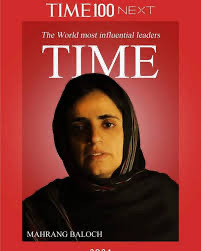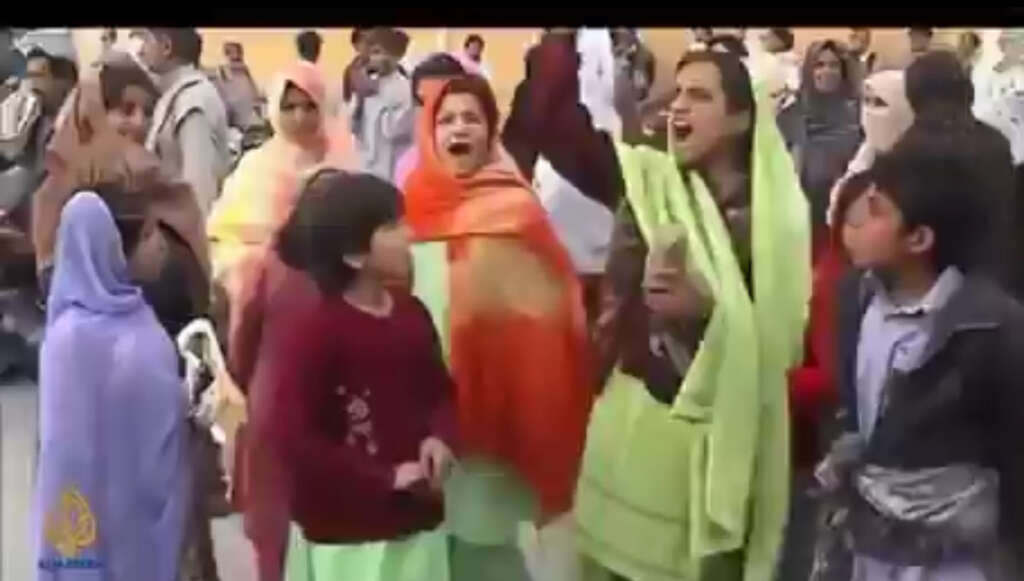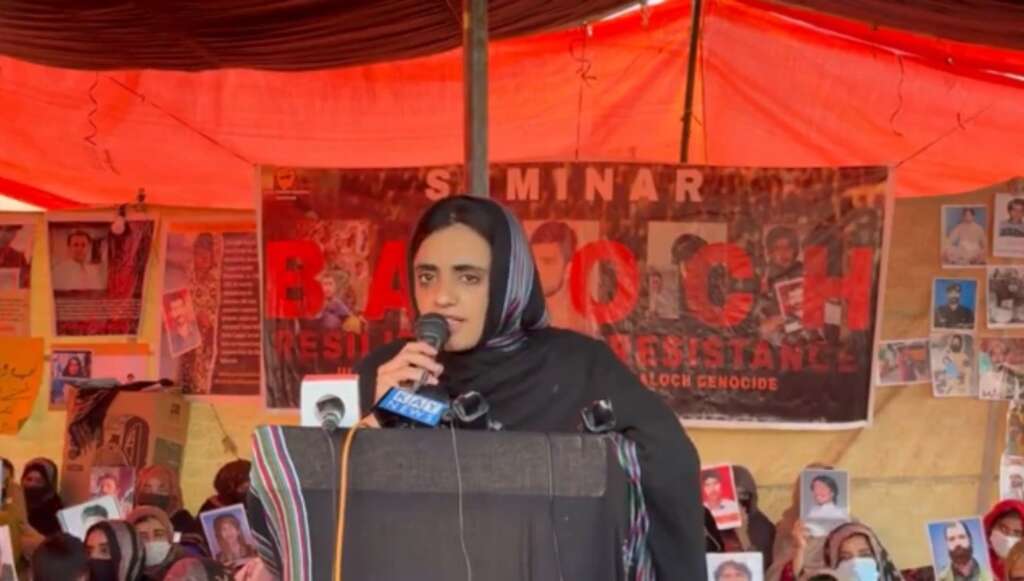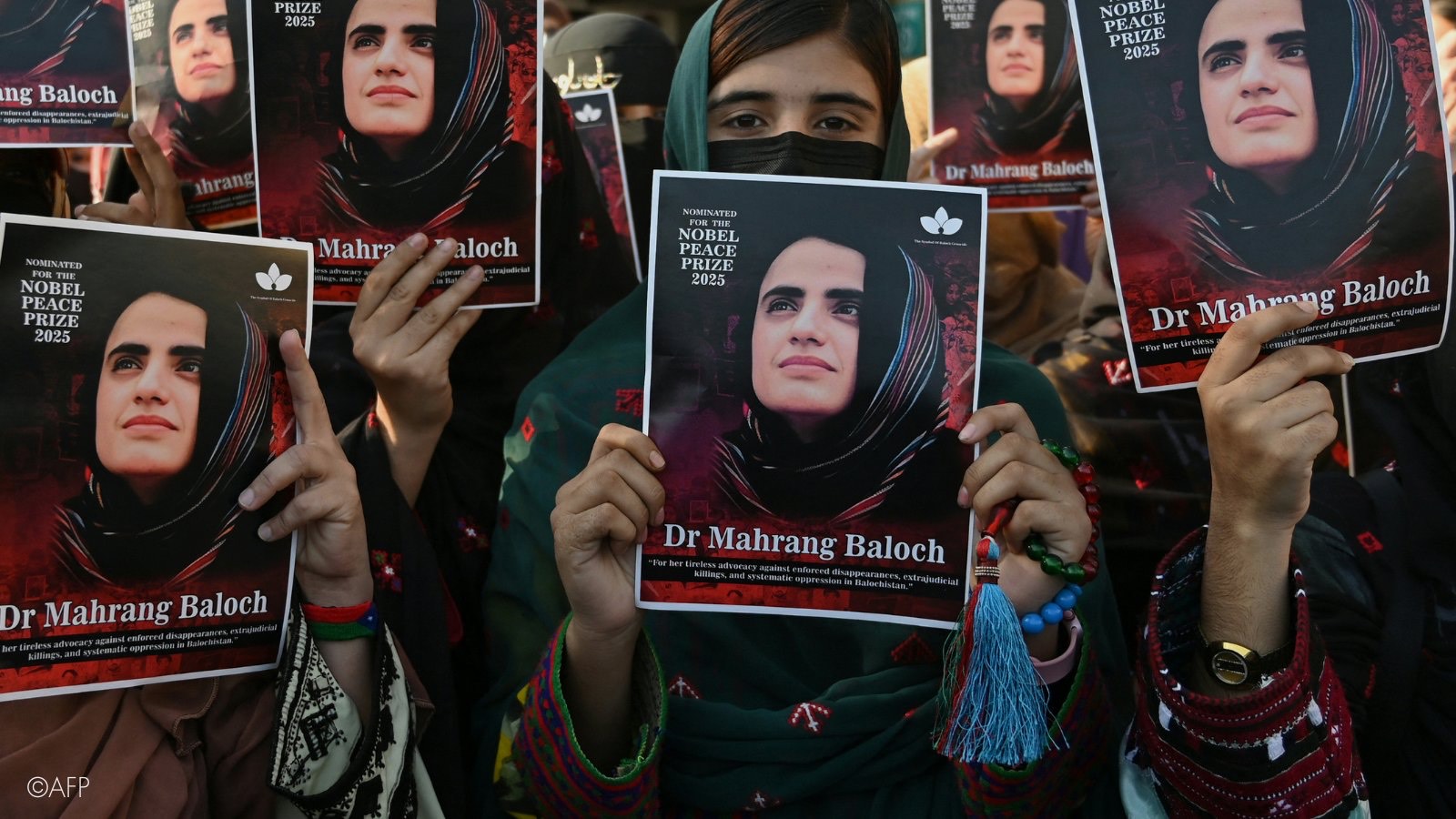We often study figures of resistance in history books—people who became symbols of their time, etched into memory by the scale of their defiance. But sometimes, history walks among us. Sometimes, it wears the face of someone you’ve seen on the street, marching beside you. For many of us, Mahrang Baloch is not just a name in a textbook. She is the pulse of our present. Since 2019, I have witnessed her stand at the very heart of Balochistan’s existential struggle: against enforced disappearances, extrajudicial executions, and the systematic erasure of a national identity.

Dr. Mahrang Baloch has become a name recognised far beyond the borders of Balochistan. From the BBC’s 100 Most Influential Women to TIME Magazine’s 100 Next and now a Nobel Peace Prize nomination, her accolades are international acknowledgments of a resistance the state tried to keep invisible. These honours, however, do not come free of pain. Recognition does not undo the cost of what was lost. Her journey has been carved out of grief, endurance, and an unrelenting demand for justice.

Her father was forcibly disappeared. His mutilated body was returned as a warning. Later, her brother was abducted—held incommunicado for months. These were not the beginnings of her activism but moments that intensified a fire already burning. Mahrang was born into a world shaped by surveillance, violence, and impunity. Those born under occupation do not need to be taught courage; they inherit it.

She emerged as a powerful voice during the infamous scandal at the University of Balochistan, where surveillance cameras were secretly installed in women’s private spaces. It was not just a violation—it was a declaration of domination. Mahrang did not flinch. She confronted it directly, publicly, naming names. Among them: Malik Tareen, the current Vice Chancellor of LUAWMS.
Despite harassment, threats, and misogynistic abuse from state authorities and their affiliates, Mahrang remained unyielding. Her message has always been clear: silence is not peace. There is no justice in passivity. Her words echo across the streets and into courtrooms, classrooms, and homes—resistance is not a choice, it is a necessity. Her life itself is the argument: struggle is not abstract, it is embodied.
She has led countless sit-ins and protests. Among them, the mass mobilisation against the extrajudicial killing of Balaach Mola Bux by CTD in November 2023. That protest evolved into a long march—from Turbat to Islamabad via Shaal and Dera Ghazi Khan. What met them in the capital was not dialogue but batons, arrests, and tear gas. Mahrang herself was detained. But even in chains, she moved people. When they returned to Shaal, tens of thousands came out to welcome them. It was no longer a protest. It was a reckoning.
In speech after speech, she has called out the violence inflicted by the state—not with hesitation, but with clarity. Her leadership of the Baloch Yakjehti Committee (BYC) culminated in the organising of Baloch Raaji Muchii in Gwadar, a town swallowed by the promise of CPEC and hollowed out by state neglect. What was meant to be a national gathering became a scene of state brutality. More than a dozen were killed, over fifty injured, and key organisers—including Sammi Deen, Dr. Sabiha Baloch, and Shahii Sinaghat Ullah—were arrested. The one-day event turned into a prolonged sit-in. Mahrang held her ground, extracted an agreement from the authorities, and forced them to listen. But predictably, the agreement was broken. That, too, has become a pattern.
Even after Raaji Muchii, her resolve deepened. She confronted the state again when unclaimed bodies were discovered in Civil Hospital, Quetta. These were not just bodies. These were names, lives, stories, reduced to silence. Families searching for their missing loved ones were met with locked gates. So a new protest began—not as an act of rebellion but as a plea for basic human dignity: the right to know, to grieve, to bury.

The state responded with its usual script—more abductions. BYC member Beebarg Baloch and his brother were taken. Mahrang led another protest. This time, the police opened fire. Three more lives were lost, including a teenager. The sit-in was raided in the middle of the night. Mahrang Baloch was taken from the protest site while people were eating supper.
Her arrest did not silence her. If anything, it magnified her message. Her words have become scripture in the movement. In a letter from jail, she wrote:
“Never forget: True strength is not just physical; it is mental and ideological. Strengthen yourselves mentally and ideologically. Be each other’s support. Never allow yourselves to break. And always remember, your sister is not weak. Weakness is not something we inherited.”
A government delegation met her in jail. They asked for a guarantee that she would step away from the movement. She refused. Not quietly, but categorically. This is not a rebellion for spectacle. This is a movement for survival—against erasure, against silence, against the slow death of a people.
Today, Mahrang Baloch stands as more than a leader. She is a phenomenon. A vision. A threat to the status quo. Her detention has not diminished her influence; it has amplified it. As her sister said after meeting her in jail, her spirit was still high enough to give others courage.
Mahrang is no longer just one woman. She is a collective will.


